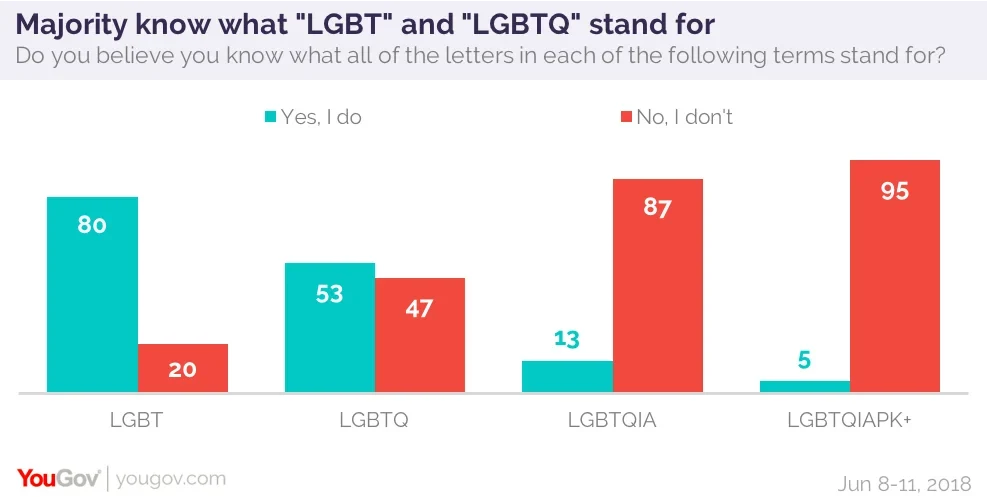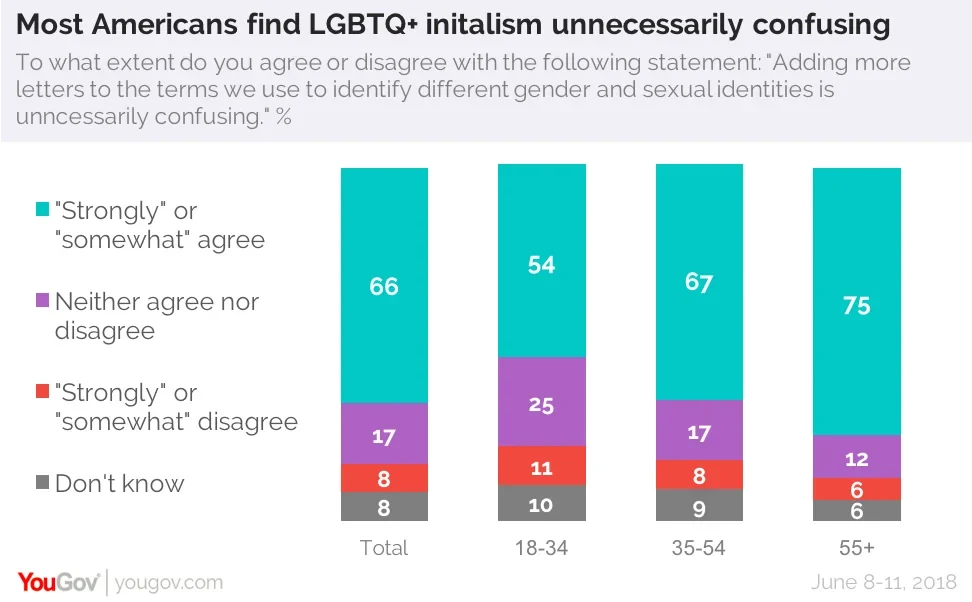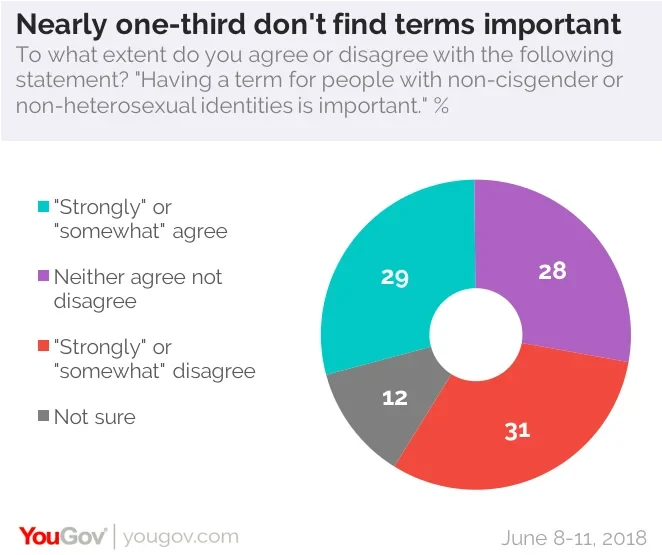Close to half of Americans (44%) said they thought people should be more educated on what the letters in LGBTQ stand for.
When it comes to initialism for sexual and gender identities, most Americans are confused. New data from YouGov Omnibus shows that a majority of Americans (80%) think they know what the letters in the term “LGBT” stand for, but far fewer (53%) think they know what “LGBTQ” stands for. The numbers continue to drop sharply when examining longer terms: 13% said they knew what “LGBTQIA” stands for, and only 5% said they knew what the letters in “LGBTQIAPK+” stand for.

Millennials tended to be the most knowledgeable about the various initials, with 66% saying they knew what “LGBTQ” stood for, compared to 53% of the general population. They were also twice as likely as the general population to know what the letters in LGBTQIA and LGBTQIAPK+ stand for.
About two-thirds of Americans “strongly” or “somewhat” agreed with the statement, “Adding more letters to the term we use to identify different gender and sexual identities is unnecessarily confusing.” People who were 55 years or older (75%) were the most likely to agree with this statement, though many in this same age group (39%) also agreed that people should be more educated on what the letters in “LGBTQ” represent.

Their younger counterparts also tended to agree that people should be more educated on initialism, with 43% of people in both the 18-to-34 age range and the 35-to-54 age range agreeing with the statement, “I think most people should be more educated on what the letters in LGBTQ represent.”

But part of the reason many Americans might not be learning these terms is because they don’t necessarily see it as important. When asked whether it’s important to have a term for people with non-cisgender and non-heterosexual identities, Having a term for people with non-cisgender or non-heterosexual identities is important,” nearly a third of people (31%) said it wasn’t. A nearly-equal amount (29%) said it was.
Just under half of Americans (44%) said that they were most likely to use the term “LGBT” to refer to people who identify as something other than heterosexual. Another 14% said they’d use the term “LGBTQ,” and more than one-fifth of people (21%) said they’d use something else entirely. Only 2% said they would use LGBTQIA and 1% said they would use LGBTQIA+.
See the full results here.
Learn more about YouGov Omnibus.
Image: Getty
Editor's Note: This headline was updated to more accurately reflect the question that was asked of respondents.











